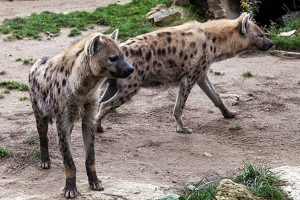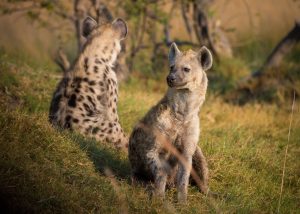In recent weeks, residents of Juja, High Point, JKUAT, and Witeithie have been living in a state of heightened anxiety and caution due to the presence of marauding hyenas in their neighborhoods.  This unexpected and alarming situation has left the community on edge as they grapple with the increasing encounters with these formidable predators.
This unexpected and alarming situation has left the community on edge as they grapple with the increasing encounters with these formidable predators.
In this article, we will delve into the details of this alarming issue, exploring why these areas are now hotspots for hyena activity, the potential risks they pose, and the measures being taken to ensure the safety of the residents.
Juja, High Point, JKUAT, and Witeithie Residents on High Alert Over Marauding Hyenas
Understanding the Sudden Surge in Hyena Encounters
Unprecedented Urban Invasion
The presence of hyenas in urban areas like Juja, High Point, JKUAT, and Witeithie is not only unusual but also concerning. Hyenas are typically associated with the wild, far from human settlements.
However, the encroachment of urban development into natural habitats has led to increased human-wildlife interactions.
Food Scarcity and Adaptation
One of the primary reasons for this unusual migration of hyenas is food scarcity in their natural habitats. As urbanization expands, it disrupts the balance of local ecosystems, causing prey animals to disappear or become scarce. In response, hyenas adapt to the changing circumstances by seeking food sources in human settlements.
Lack of Awareness
Many residents were caught off guard because they were unaware of the presence of hyenas in their vicinity until recent incidents. Lack of awareness and information on how to handle encounters with these animals has exacerbated the problem.
Risks Posed by Marauding Hyenas
Threat to Livestock
Hyenas are opportunistic predators known for scavenging on livestock and domestic animals. The residents of these areas have reported several cases of livestock losses, causing significant economic hardships for local farmers.
Potential Danger to Humans
While hyenas are not typically known for attacking humans, the increased proximity to human settlements raises concerns about potential conflicts. In some instances, residents have reported confrontations with hyenas, posing a risk to their safety.
Community Response and Safety Measures
Raising Awareness
Local authorities, wildlife conservation organizations, and community leaders have initiated campaigns to raise awareness about the presence of hyenas. Educational programs and workshops are being conducted to educate residents on how to coexist safely with these animals.
Reporting and Monitoring
Residents are encouraged to report any hyena sightings or incidents promptly. Authorities are actively monitoring the situation and responding swiftly to mitigate risks.
Securing Livestock
Farmers and livestock owners are being advised to reinforce the security of their animals by implementing safety measures such as sturdy enclosures and proper fencing.
Relocation Efforts
Wildlife conservation teams are exploring options for safely relocating the hyenas to their natural habitats, away from populated areas. This is a complex process that requires careful planning and execution.
Nighttime Vigilance
Residents are advised to exercise caution, especially during nighttime hours when hyenas are most active. Avoiding walking alone in the dark and keeping outdoor spaces well-lit can reduce the risk of encounters.
FAQs
- Are hyenas dangerous to humans? Hyenas are generally not known for attacking humans unless provoked. However, caution and awareness are essential when living in areas with hyena presence.
- What should I do if I encounter a hyena? If you encounter a hyena, it’s crucial to stay calm, avoid direct eye contact, and slowly back away without turning your back on the animal. Do not run, as this may trigger a chase response.
- How can I protect my livestock from hyena attacks? To protect your livestock, invest in secure enclosures and fencing. Avoid leaving animals unattended in open areas during the night.
- Are there plans to relocate the hyenas? Yes, wildlife conservation teams are actively exploring options for safely relocating the hyenas to their natural habitats.
- How can I stay informed about hyena-related developments in my area? Stay connected with local authorities and wildlife conservation organizations for updates on hyena sightings and safety measures in your community.
Conclusion
The unexpected presence of marauding hyenas in Juja, High Point, JKUAT, and Witeithie has certainly shaken the local communities.
 However, concerted efforts from various stakeholders, including residents, authorities, and wildlife conservationists, are being made to address the issue and ensure the safety of all. Awareness, vigilance, and proactive measures are key to finding a balance between human activities and wildlife coexistence.
However, concerted efforts from various stakeholders, including residents, authorities, and wildlife conservationists, are being made to address the issue and ensure the safety of all. Awareness, vigilance, and proactive measures are key to finding a balance between human activities and wildlife coexistence.
Recent Posts
Europe’s GPU market offers a wide range of high‑performance graphics cards tailored to gamers, creators, and professionals. Choosing the right GPU to buy in Europe depends on your budget,...
Top Semiconductor Companies In Europe – Field-Tested Choices
Europe has a long history in semiconductor innovation, producing advanced chips for automotive, industrial, and consumer electronics. The region’s strong engineering talent and research...